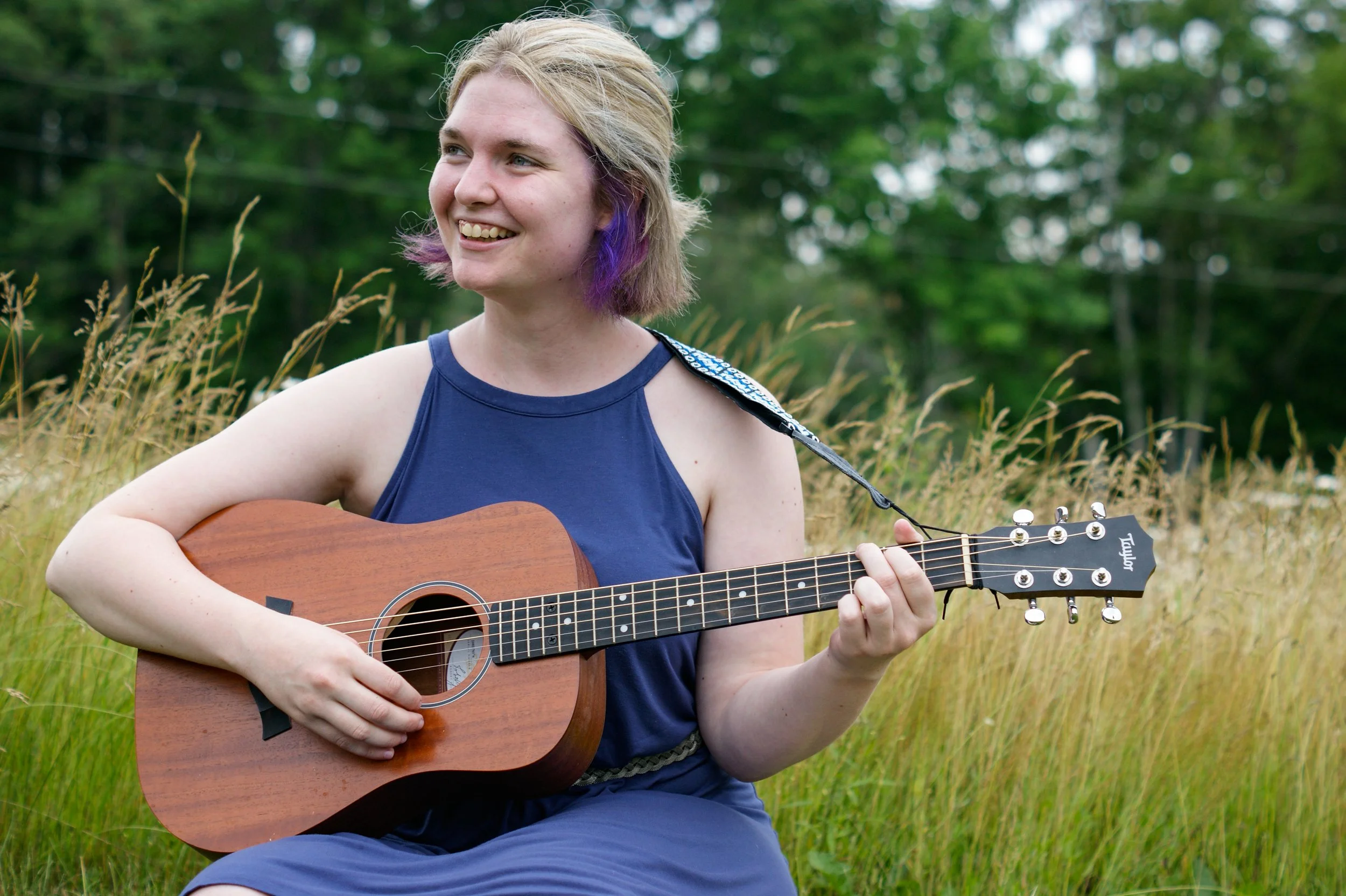At Regulate, Connect, Create, we help schools build emotionally responsive, trauma-informed environments where students and educators can thrive. Through experiential professional development, we equip school communities with the tools to co-regulate, foster authentic relationships, and engage in creative expression as a path to healing and learning. Our work bridges neuroscience, expressive therapies, and educational best practices to support meaningful, lasting change—from the inside out.
Hello!
Welcome to Regulate, Connect, Create! My name is Sarah Ames. I am a music therapist, mental health counselor, and school consultant dedicated to helping educators build safe, connected, and creative learning environments. I believe that when adults regulate, students can connect, opening the door for creativity, engagement, and joyful learning.
With a background in music therapy and counseling, I have spent several years working in schools and therapeutic settings, supporting children, their families, and educators. My approach is healing centered, neuro-affirming, and LGBTQ+ affirming. As an educator, I specialize in translating research-based principles and practices into classroom-ready tools to support mental health and learning. These tools are inspired by music, movement, and the arts, creating avenues for connection for every student.
Through the Regulate, Connect, Create model, I hope to equip educators with strategies to:
Regulate — adult-led practices that stabilize and co-regulate classroom energy.
Connect — authentic, trauma-informed relationships that foster belonging.
Create — arts-based and creative approaches that engage students and spark joy in learning.
My work helps schools cultivate cultures where mental health, connection, and creativity are central. My vision is simple: classrooms where educators feel empowered, students feel safe and seen, and creativity thrives in every lesson.
When I’m not consulting in schools or working with clients, I am making music, snuggling with my cat, and spending time in the natural world with my partner.
Education
M.A. Clinical Mental Health Counseling with a Specialization in Music Therapy | Lesley University, May 2023
B.A. Music Therapy (Self-Designed) | Keene State College, May 2020
License & Certification
Licensed Clinical Mental Health Counseling
Board-Certified Music Therapist
-
Supporting Adult & Student Regulation
At the core of our framework is regulation: the intentional practice of calming the nervous system to foster safety and readiness. By developing skills in co-regulation and self-awareness, adults and students alike can better manage stress, emotional overwhelm, and reactivity. This foundational step sets the stage for deeper learning and connection.
Guiding Questions:
How am I feeling right now, and how might that affect my teaching or interactions?
What strategies can I use to stay calm and centered during challenging moments?
How can I help students notice and manage their own energy and emotions?
Are there routines or cues I can use to help the classroom regulate as a group?
What sensory or movement tools could support regulation for myself and my students?
-
Building Authentic Relationships & Belonging
Connection builds on regulation by nurturing authentic relationships and a sense of belonging. Through healing-centered and neuro-affirming approaches, we support adults in cultivating empathy, trust, and communication that invite students to feel seen, heard, and supported. Connection is the bridge between safety and engagement.
Guiding Questions:
Who in my classroom might need extra connection or attention today?
How can I show that I see and value each student’s perspective?
Am I asking questions that invite understanding rather than compliance?
What opportunities exist for students to connect with each other authentically?
How can I create an environment where students feel safe sharing, listening, and collaborating?
-
Engaging Creativity as a Tool for Learning & Wellbeing
Creativity is the transformative practice that empowers expression, innovation, and healing. Using arts-based strategies, our framework encourages the integration of creativity as a tool for resilience, identity exploration, and growth. Creativity completes the cycle by opening new pathways for learning.
Guiding Questions:
How can I bring creativity into today’s lesson or activity?
What arts-based or expressive strategies could help students process feelings or ideas?
Are students being given space to explore, experiment, and take risks?
How can creativity be used to strengthen engagement, problem-solving, or collaboration?
What small, playful interventions could spark curiosity and joy in the classroom?


